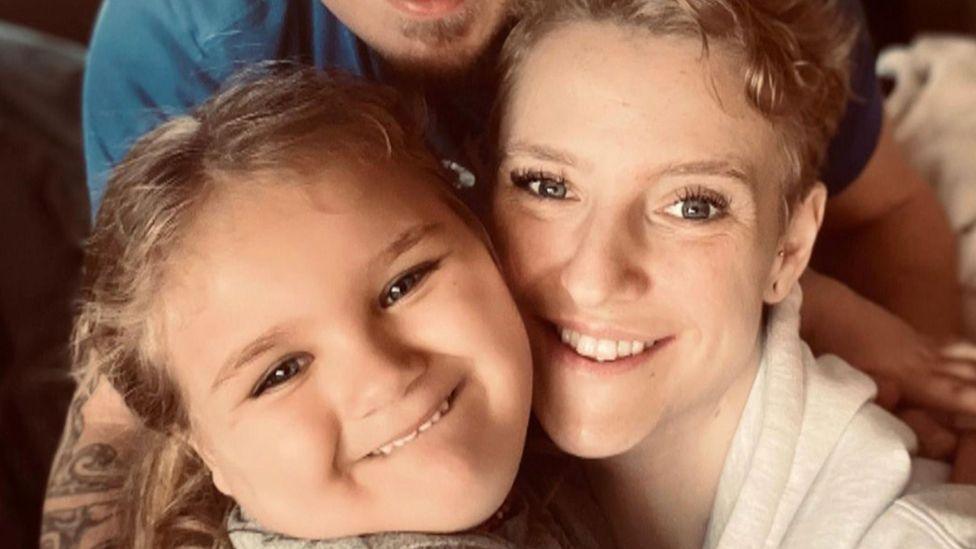Girl, 7, wins award after mum has epileptic seizure
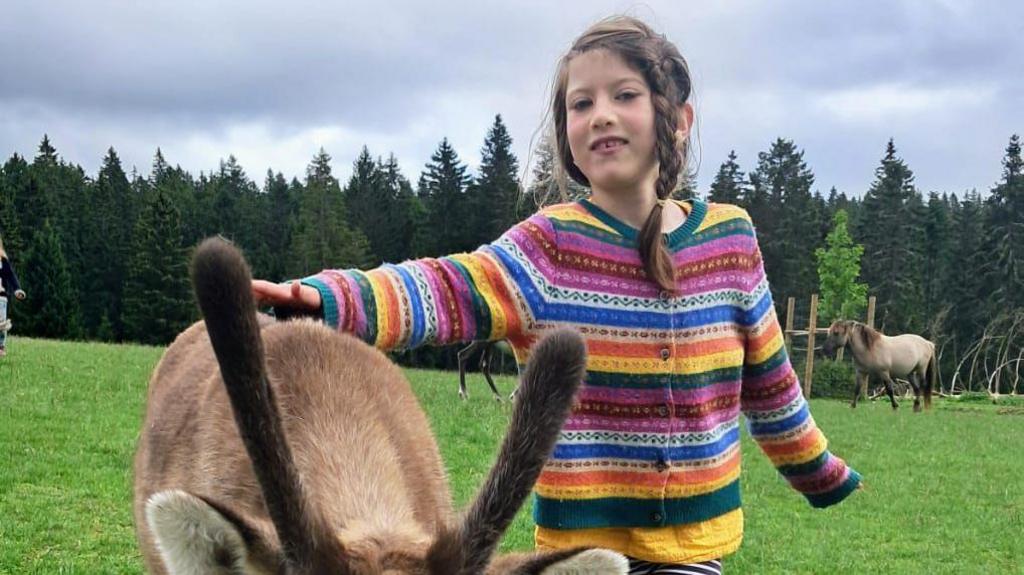
Aisha Cox has been awarded the Epilepsy Star Award for her actions
- Published
A seven-year-old girl has been awarded for her "swift and brave response" after her mum suddenly had a seizure and collapsed.
Lucy Cox, from Welshpool, Powys, said she was "proud" of the way her daughter, Aisha responded.
She has now won an Epilepsy Star Award from charity Epilepsy Action, external.
Epilepsy is a condition which affects about 36,000 people in Wales, and around 630,000 people across the UK.
Lucy said she was in the kitchen cooking dinner when she began having a seizure.
"Aisha's first response was to put a cushion underneath my head on the hard stone floor," said Lucy.
"She then turned off the gas hobs and oven to make the environment safe before trying to contact her dad."
The seven-year-old had been taught to ask the Alexa app to "call dad", but when she did so she heard the phone ring in the house.
She decided to use it to call her grandad who quickly came to the aid of both her and Lucy.
"She is a real hero and it was her quick thinking that helped me get the help I needed," Lucy added.
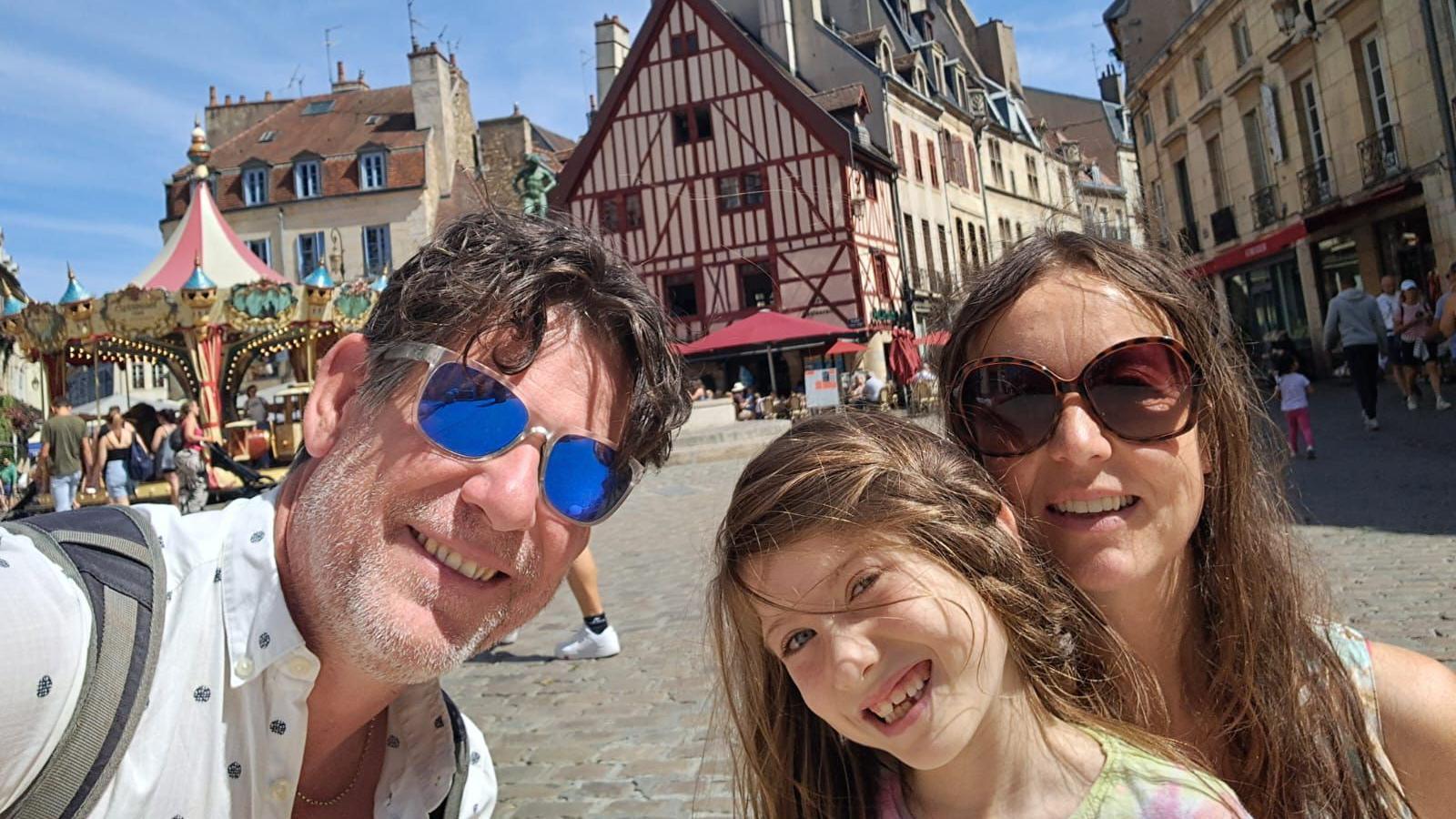
Aisha used the 'Alexa' function to find her dad's phone before calling for help
Epilepsy affects around one in every 100 people in the UK and 80 people are diagnosed every day.
Lucy, who was diagnosed with the condition when she was 16, believes epilepsy is a "misunderstood condition".
"There are many different types of epilepsy and seizures. All of these things people don't quite understand," she added.
Ms Cox said not enough people know what to do when they see someone having a seizure.
She said: "It's very important that people understand what a person with epilepsy may require if they are in a difficult situation."
Rebekah Smith, interim chief executive at Epilepsy Action, said Aisha was commended for her "swift and brave response".
"The whole team at Epilepsy Action is inspired by Aisha's actions, and we hope that they will inspire others too, to learn what to do when someone is having a seizure," she said.
What is epilepsy?
Epilepsy is a common condition that affects the brain, external and causes frequent seizures.
It can start at any age, but usually either in childhood or in people over 60 and is often lifelong, but can sometimes get slowly better over time
Symptoms can vary but can include uncontrollable jerking and shaking, losing awareness and staring blankly into space, becoming stiff and collapsing
Call 999 for an ambulance if someone is having a seizure for the first time, has a seizure that lasts more than five minutes or has lots of seizures in a row
Source: NHS
- Published1 July 2024
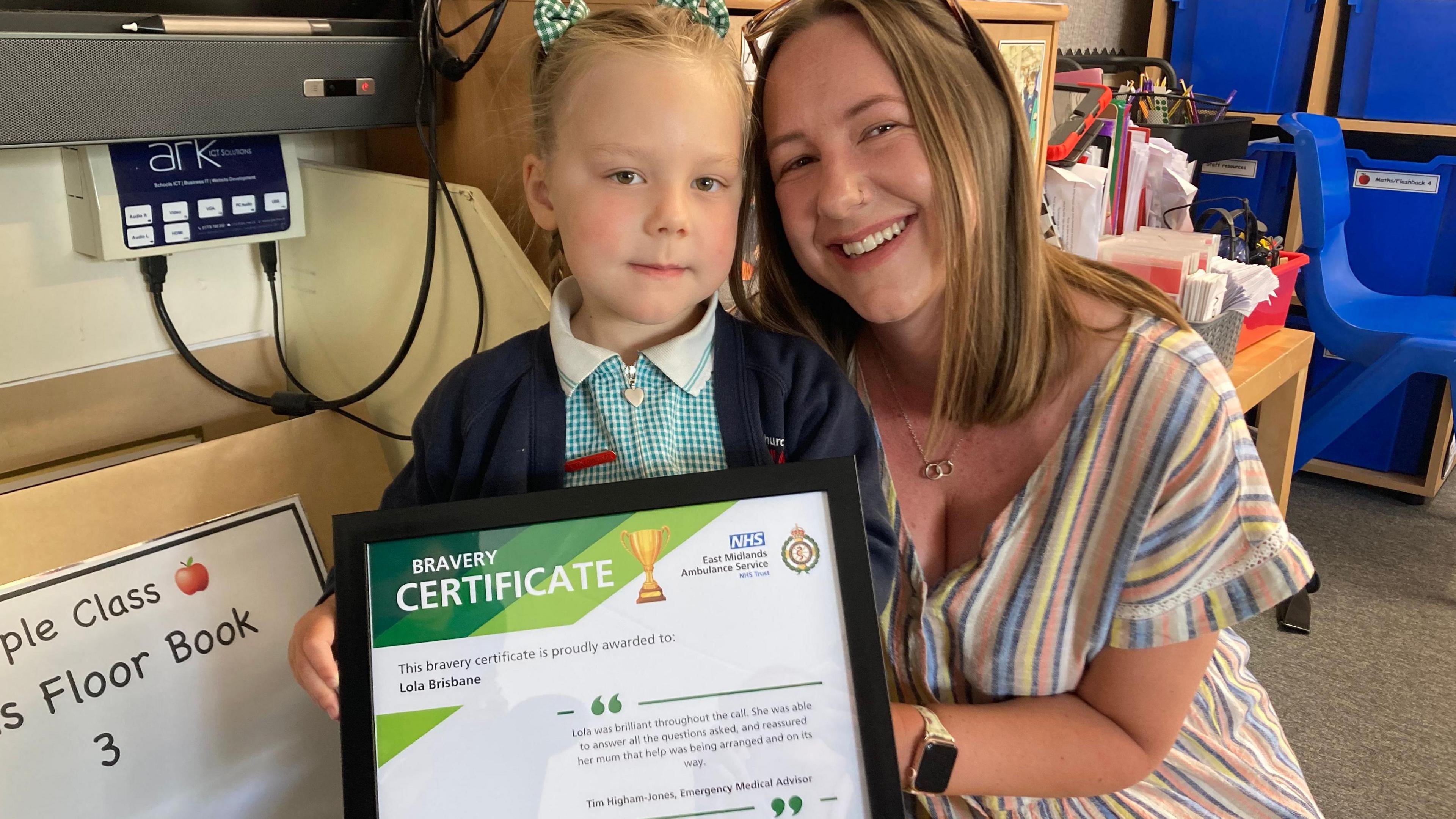
- Published18 September 2024
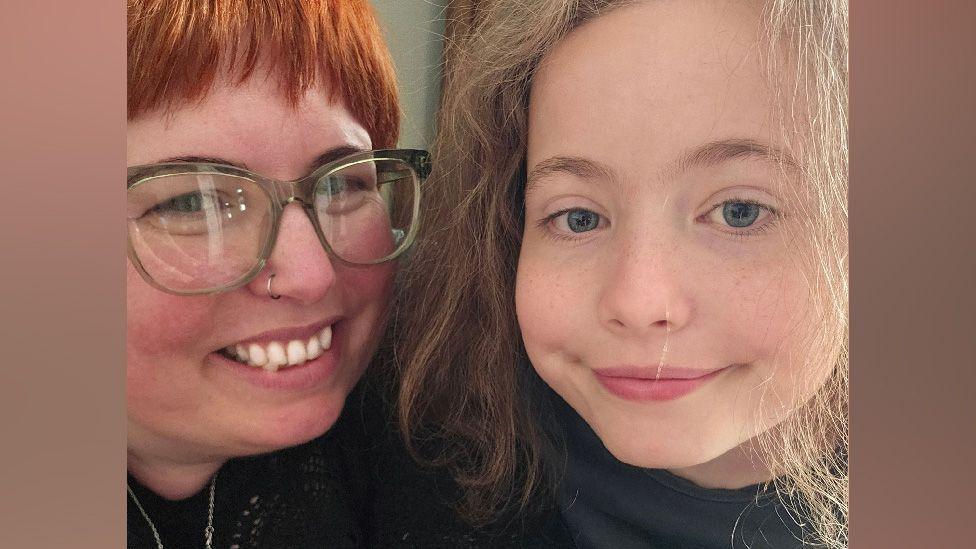
- Published12 June 2024
